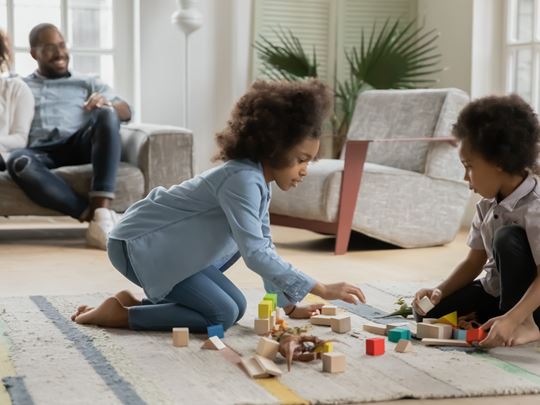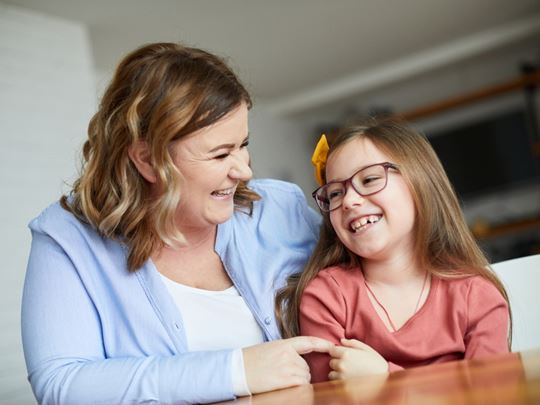
Thinking about fostering? We’ve got lots of information to help you on your journey to becoming a foster parent and changing a child’s life, but there’s lots to consider. A common misconception about fostering is that you have to have your own children first. While that isn’t true, it’s important that you understand that every child’s circumstances are different. How you might approach raising your own children will vary greatly from the level and type of support a foster child will need.
Here we explore the key differences and similarities between parenting and fostering so you can make the most informed decisions possible, and do best by any children that may be in your care in the future.
Legalities and finances for fostering
By definition, there are key differences between being a parent and a foster parent. Both mean raising children and young people and providing a safe, secure, and nurturing environment, but there are fundamental differences.
The legalities
Parent: A parent is someone who has legal responsibility over a child. This could be because they gave birth or are biological parents to the child or adopted them. If you are legally a parent all decision making and responsibilities lie with you.
Foster parent: The role of a foster parent is different to that of a parent. Fosterers look after other people’s children on a temporary or ongoing basis, but decision making is shared between the child’s birth parents and the local authority. Sometimes additional responsibilities can be given to the foster parent, enabling you to make more decisions or do things like taking your foster child on holiday.
Considering your finances
A big difference between fostering and having your own children is money. As a foster parent you receive financial support, enabling you to take care of someone else’s child without having to worry about the cost. Foster care pay provides you with a salary as well as a fostering allowance, so that you’re paid for your time and can also provide for your foster child.
When you have your own children, whether adopted or biologically, you won’t receive financial support in the form of an allowance like when you foster, but you might be eligible to claim child benefit from the government. Foster parents aren’t eligible for this, so make sure you do research.
There’s lots to consider before you get into fostering, including taking a look at the different types of foster care to establish which is right for you. Fostering could be short term, just for respite to give parents a break, or on a permanent basis.
When you become a foster parent you are providing a potentially life-changing opportunity for a child or young person by offering them a loving and nurturing home that they may never have had before.
"Moving into full time fostering was definitely unknown territory for us, but it was the best decision we made and we’ve never looked back."
Formerly in the armed forces, both Ellie and Pete now foster full time.
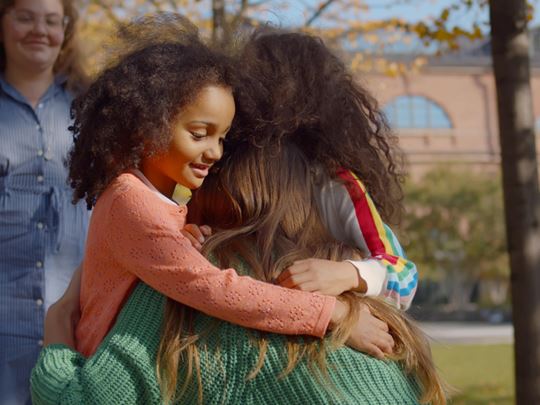
Preparation and expectations
Preparing for a child to come into your life permanently is quite different to fostering. Whether you have biological children or have adopted, you know your child will be a permanent fixture in your family. During pregnancy or the adoption process you will have had time to process the arrival of your child and how this will change your life.
Becoming a foster parent takes time and this part of the fostering process will give you time to get to grips with what life as a foster parent will be like. But unlike having your own children, foster children can come and go. Whenever possible, the goal of fostering is to reunite children and young people with their own families.
A child’s circumstances can change often, which means that as a foster parent you need to be ready for a child to arrive at your home quickly, without much warning, and for them to leave to - hopefully - go back to their own families, or in some cases move on to another family’s home.
Tailoring the care you provide
When taking care of a child that isn’t your own, you’ll try alternative ways of parenting that might seem alien to everything you think you know. If you’re welcoming a child into your home for the first time, remember they are having to learn a new life from scratch and could be starting their journey with you at any age.
Every child is different
Your role as a foster parent is to provide a safe, secure, and loving home for the young person in your care, but children in foster care might be experiencing this type of environment for the first time in their lives. All children’s needs are different, whether they’re your own or you’re fostering them.
Many factors will determine how a child in your care will need to be cared for, but the best foster parents understand that there is no one-size-fits-all approach. Where instinct might lead the way with your own children, a foster child’s unique circumstances will mean that how you care for them is different.
Reasons your foster child might need an alternative approach
- Traumatic upbringing
- Experience of abuse and neglect
- Difficulty trusting adults
- First time having rules and boundaries
- Learning difficulties
- Missed milestones in early development
- No biological connection to you
- Settling into a new environment
- Blending into a brand-new family at an older age
Fostering when you have no children
Don’t let what you think you know hold you back. Anyone can foster.
You don’t need to be in a relationship or have your own children to foster. As long as you have a spare bedroom, are over the age or 21 and can provide a loving home to a child, your age, gender, ethnicity, sexual orientation or any disabilities don’t come into it.
Our community of foster parents is incredibly diverse; each fostering household brings a different perspective, which means we can match the right children with the right families, and provide the fantastic care that we’re known for.
As a foster parent you’ll need to be patient, energetic, committed and resilient. We provide all new foster parents with lots of support and training, whether you have children of your own or not, so you can rest assured if you’re worried about fostering when you haven’t parented your own children.
Meet one of our foster parents. Clinton is from Belfast, in his thirties, single, gay and doesn’t have his own children. He has been fostering with FCA since 2021.
“There is a need for young people to be looked after and supported, so a fostering myth that should be busted wide open is that anyone can do it. If you are single, gay, or anything. Lots of people are equipped to do it.”
Day-to-day life
You will likely have your own routines and ways of doing things that might be difficult for a child in your care to get used to if they have never experienced them before, but you can integrate them into your own family with care and consideration.
Your foster child’s own experiences will affect their perceptions and reactions to things which might seem perfectly normal to you. You will need to respect their boundaries, understand their history and show them what it’s like to be part of a loving family.
Things you can do with your foster child:
- Sit down as a family at meal times
- Cooking
- Household jobs
- Going on holiday
- Shopping
- School work
- Spending time with friends and family
- Going on holiday
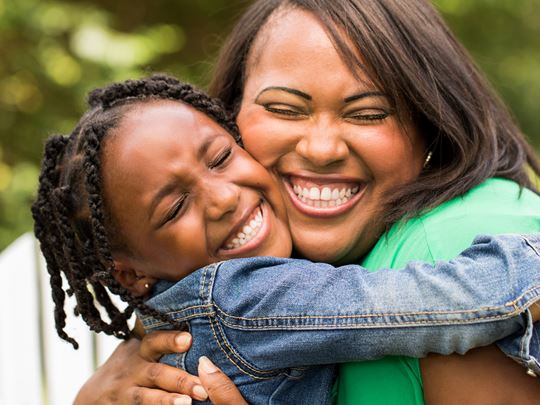
Saying goodbye to your foster child
Foster parents often worry about having to say goodbye to the children in their care. As a foster parent you need to be patient, caring and empathetic, but resilience is also important. Saying goodbye to a child you’ve cared for might be difficult, but it’s important for a child to move on to the next stage of their lives - without incredible foster parents this just wouldn’t be the case.
At FCA we have wonderful examples of foster children staying in touch with their foster families after moving on, or growing up and leaving home after being staying with the same family for a longer period of time.
“Saying ‘goodbye’ is one of the hardest parts for me. Watching the young people move on to start their next chapter can be really hard, but we are so lucky in the way that most of our families keep in touch with us. I’ve loved every minute of it.”
Sarah has been fostering for more than 10 years.

Support from FCA
At FCA we know that fostering is a big decision, and one which requires lots of thought and research, but we’re here to answer any questions you might have. Fostering and parenting can be quite different, but fostering will fill you with pride as you watch your foster child grow and develop. We want everyone to feel like they’re part of the family. We provide a positive and uplifting environment so that our foster parents feel empowered to be the best for the children we support.
Whether you’ve been fostering for 20 years or are just getting started, it’s vital that you have the right support available to help you and the young people you care for. We have support on-hand 24/7 should you need advice or help, plus a FosterTalk membership for free and confidential advice, as well as ongoing training and development from our in-house team.
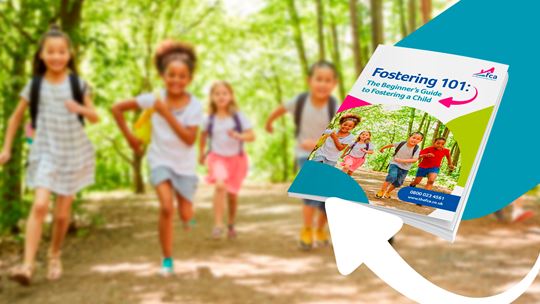
Are you thinking of fostering?
Download the FCA’s complete beginner’s guide to fostering a child. Find out more on how to foster a child and the process involved.


